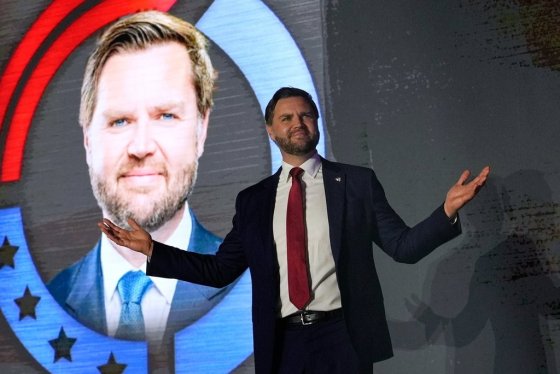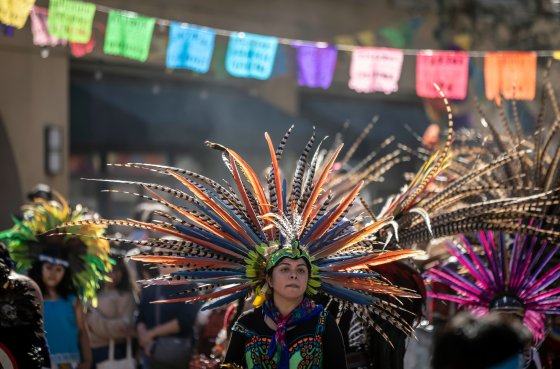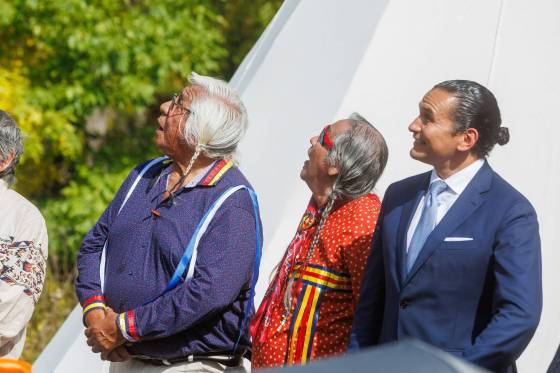FIVE STORIES ON TURTLE ISLAND
1. APTN has uncovered that billions of dollars in federal contracts intended to engage and empower Indigenous businesses across the country are mostly flowing to just two dozen firms in the Ottawa region.
While the federal government follows a procurement strategy for Indigenous business — a strategy that often doesn’t meet targets — Indigenous businesses in proportionally-high areas such as Manitoba, Saskatchewan, and B.C. are simply being left out in the cold while nearby Ottawa-centred businesses profit mightily.
Largely because of the weak standards and policies within federal procurement departments, there are now wide-scale concerns that the federal government’s upcoming surge in spending on major projects could again steer most Indigenous-intended spending toward Ottawa-area firms and little elsewhere.
2. This past week, Indigenous veterans met in Winnipeg for the third annual Indigenous Veterans Summit.
Hosted by the Southern Chiefs Organization, veterans and their allies met to discuss how to further support Indigenous peoples in the Canadian military and to celebrate the recent passing of Bill 210 in Manitoba, recognizing Nov. 8 as the Indigenous Veterans Day.
Last week, the Canadian Armed Forces apologized to all current and former Indigenous CAF members and their families who have experienced systemic racism, racial discrimination, and racial harassment in connection to their military service.
Speaking of honouring Indigenous veterans, SCO is also hosting a powwow to honour their contributions on Nov. 8 at Sergeant Tommy Prince Place at 90 Sinclair St.
3. The federal government has misplaced 132 pieces of Indigenous art and “risks losing trust with Indigenous artists” if bureaucrats do not tighten their policies, a recently discovered federal report states.
Representing nearly three per cent of all federal holdings of First Nations, Inuit and Métis art, the works were marked as lost in November 2024 and were in the past distributed for display throughout federal government departments. It’s unknown precisely which art is missing (further evidence of poor management); regardless, a significant portion of Canadian history is now likely gone forever.
4. The federal Standing Committee on Indigenous and Northern Affairs this week heard from Indigenous police forces throughout the country who say they are having trouble providing policing services on First Nations because they are not deemed an “essential service.”
Long an interest among chiefs at the Assembly of First Nations, this means 36 First Nations-run police services throughout Canada who provide service to 156 First Nations and almost one-third of the country’s land mass are in crisis mode or are shutting down, leaving their work to RCMP and other provincial police forces.
5. The winner of “Indigenous stereotype of the week” goes to U.S. Vice President JD Vance.
At an event last week, Vance perpetuated the lie that pre-contact Indigenous communities practised human sacrifice widely and the arrival of Christians on the continent ended this savagery.

U.S. Vice President JD Vance takes the stage during a campus tour event at the University of Mississippi on Oct. 29. (Gerald Herbert / The Associated Press)
While human sacrifice was practised throughout all cultures and communities of the world (including Christian ones: check out the multiple stories of stoning in the Bible, for instance), reports of Indigenous nations performing more human sacrifice than anyone else is simply a Eurocentric fantasy and “invention,” according to scientists.
Add this to one of the many, many instances of Vance “inventing stories” about racialized people for “media interest” — as he has admitted to doing in the past.
IN PICTURES

An Indigenous dancer, one of several groups gathered from all over the bay area, performs during Dia De Los Muertos festivities in the Fruitvale district in Oakland, Calif., on Nov. 2. (Carlos Avila Gonzalez/San Francisco Chronicle via The Associated Press)

Brazil’s President Luiz Inacio Lula da Silva, right, talks with Indigenous leaders after an inauguration ceremony for Minister of the General Secretariat Guilherme Boulos at the Planalto presidential palace, in Brasilia, Brazil on Oct. 29. (Eraldo Peres / The Associated Press)
RECONCILI-ACTION OF THE WEEK
Every week I highlight an action, moment, or milestone forwarding reconciliation, illustrating how far Canada has come — and how far the country has yet to go.
This week’s reconciliaction is the 10-year anniversary of the National Centre for Truth and Reconciliation (NCTR).
The centre was “decades in the making” before it opened its doors on the campus of the University of Manitoba on November 3, 2015.
The centre was founded to provide a space for research, public education, and an archive for studies into Canada’s policy on residential schools and its lasting legacy throughout Canadian society after all of the work that went into the Truth and Reconciliation Commission.

Survivors Keith Chiefmoon (left) and Antoine Mountain (centre), look up along with Premier Wab Kinew, the minister responsible for Indigenous reconciliation, announces that his government will be putting forward $20 million to support the construction of a permanent home for the National Centre for Truth and Reconciliation (NCTR) at the University of Manitoba during a ceremony on Sept. 12. (Mike Deal/Free Press files)
As the NCTR prepares for a new building and new chapter, the centre marks 10 years as a place for all Canadians to listen and learn from one another while committing to a spirit of reconciliation together.
|

